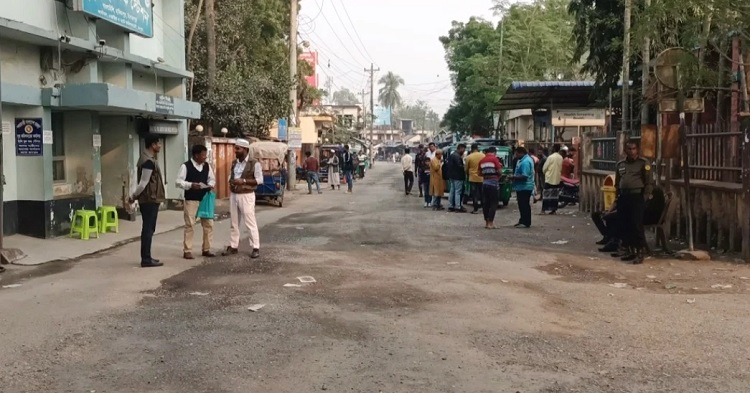HMPV in India: Lack of precautionary measures at Hili land port


The discovery of the first case of Human Metapneumovirus (HMPV) in India has raised concerns over the lack of precautionary measures at the Hili land port to prevent the potential spread of the virus into Bangladesh.
Passengers traveling daily between India and Bangladesh via the land port are doing so without undergoing health screenings, raising concerns about the risk of transmission.
Besides, numerous goods-laden trucks pass through the port daily, with drivers and helpers frequently crossing borders, further increasing the chances of the virus spreading.
Health experts are on heightened alert given the timing of the HPMV outbreak, which started in China around the same time of the year in 2019-20.. Symptoms of the virus include fever, cough, nasal congestion, sore throat, and sneezing, resembling those of the common flu. Children and elderly individuals with weakened immune systems are particularly vulnerable to the virus.
First identified in the Netherlands in 2001, HMPV cases were reported among children in Cambodia between 2007 and 2009. Recently, two children in India were diagnosed with the virus, adding to concerns about its spread.
Shyamal Chandra, a traveler at the Hili check-post, expressed his apprehension: “I’ve heard from various sources that a new virus, similar to COVID-19, has emerged. Although I’m anxious, I must travel to India for medical treatment. If immigration activities are suspended, it will cause significant problems for me, so I have no choice but to proceed.”
Md. Ariful Islam, Officer-in-Charge of Hili Immigration Checkpoint, said, “We have recently become aware of the HMPV virus. Passengers traveling through the Hili check-post are being advised to wear masks and maintain health awareness as a precautionary measure. Further steps will be taken upon receiving instructions from higher authorities.”
Upazila Health and Family Planning Officer Dr. Iltutmis Akand explained, “HMPV is similar to the common flu, with symptoms such as fever, cold, cough, nasal congestion, sore throat, and sneezing. While children and the elderly may face more severe complications, there is no need to panic at this stage. The matter has been reported to higher authorities, and necessary measures will be implemented in due time.”
Meanwhile, the World Health Organization (WHO) reports that over 14 million lives were lost, and more than 400 million people were infected during the COVID-19 pandemic. In light of this, the emergence of HMPV has sparked public fear, particularly in areas like Hili, which experience significant human movement and trade.
Authorities and health experts have been urging vigilance and timely action to prevent the virus from becoming a larger threat.
What to know about HMPV
Human Metapneumovirus (HMPV) is a respiratory virus that typically causes mild to moderate flu-like symptoms. It is more common during winter and early spring and spreads through direct contact with infected individuals or contaminated surfaces.
Symptoms often include cough, nasal congestion, sore throat, and fever. However, severe cases may lead to wheezing, breathing difficulties, hoarseness, or pneumonia. In vulnerable groups, such as infants under one year, the elderly, and those with weakened immune systems, HMPV can cause significant respiratory complications.
